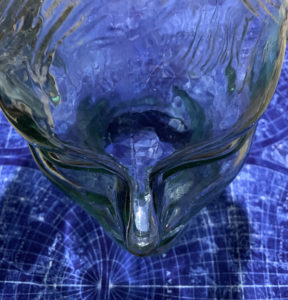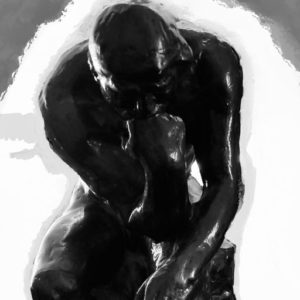 Thurston’s Thoughts
Thurston’s Thoughts
Supreme Miscarriage
Aborted Understanding
The Supreme Court was established by the Judiciary Act of 1789 by Congress as a federal court system. It was intended to represent the will of the entirety according to the permanence of the Constitution superseding any legislative temporary will of a portion of the people. It emphasized all of the people’s greater good over some of the people’s will. Its purpose is to interpret and define the law constitutionally, not to create it. Thus, from the very beginning it has failed its primary purpose of judicial review rejecting impartiality as evidenced by sanctioning slavery and women’s suffrage.
The Supreme Court has catered to religion, social irregularities, and ideological biases under the glitches of judicial interpretations and political separation while ignoring over half the population. The departure from objectivity applied to constitutionality compromises the integrity and lofty esteem purported and afforded the court. Furthermore, lifetime appointments provide the comfortability of unaccountability amidst a veneer of impartiality. They are not the referee but the replay center to fairly adjudicate determinations.
Separation of church and state is implicit in the First Amendment to prevent restrictions of freedom of religion and expression. The vicarious reverberations of the high court’s decisions often conceals their motivations while revealing their partisan intent. Although inspired and directed by the British, European classism, and Christian Doctrines of Discovery, America was founded on conquest and not religion. A common misnomer is that America is or was founded as a Christian nation. It was NOT and is NOT.
Many of the Founding Fathers such as George Washington and a key framer Thomas Payne had very differing views of religion both personally and professionally. Most were unitarians at best, if not stone cold atheist. Thus, the freedom and separation of religion from government intervention or its intervention in government. Politics later begot religion with the Protestant influx of money and influence bringing in the sheep. Religion and morality are a social construct used to compromise the scope of legal clarifications narrowing or widening its interpretations to a designated outcome giving the assumption of impartiality.
This assumption of impartiality is not by the merits of the decisions rendered but the expectations of neutrality and detachment from them by the high court. America’s traditional patriarchal hierarchy devours any application not reflective of this peephole authoritative perspective. The Supreme Court is the final arbitrator to validate these disproportional propositions. Women suffrage was a struggle for women’s codified autonomy beyond just the right to vote. It was a declaration of exercising an identity separate from a man’s authorization. A woman’s identity was breeding and caretaking under the guardianship and permission of men.
Many commonalities of the past are unconscionable to women of the present. Sanctioned beatings, no legal standing, and many more subjugations overcame only to find themselves locked in a groundhog day of patriarchal authority surrounding the abortion issue again. Could abortion be an expression of their religious freedom or personal reckoning of their religious or circumstantial expression? Similarly, is the death penalty our reckoning with our salvation? Accordingly, sanctity of life seemingly must have an age or rage limit. Whichever, the judgement would seem to be more religious than a legislative or judicial prerogative lacking consistency of conviction toward life.
I am pro-life but pro-choice understanding that it is not within my quarry to dictate decisions regarding another’s rights or body, female or male, according to my projected ethics or conditioned predilections. It certainly is not a deliberation I feel any authority to dictate as a man imposing my morality on a woman. If a woman is the vessel for the portal of birth, bearing the preponderance of the burden after conception then these decisions should be left among them to decide.
I equate this to the most fundamental of constitutional rights. Freedom of expression, speech, and religious guidance are rights, not privileges. What a woman uses her body to facilitate is her personal choice. A driver’s license is a privilege and can be rescinded, suspended, or denied. A constitutional right is subject to neither and is inalienable. In addition, how can an anti-vaxxer refusing dictations of what they must subject their body to manage to be anti-pro-choice about another’s body? According to the government with vaxxes life was at stake, but for detractors so was freedom. Freedom won.
The dissonance is not what is being done but to who and what it is being done to, women and their body. So, that which exist is relegated by that which has yet to exist. Moreover, weigh the vax against forced full-term pregnancy, child birth, and child rearing obligations and tell me which one is more personal, restrictive, or intrusive. If the sanctity of your body is your right how can anyone else’s not be theirs. An unborn child is part of a woman’s body until it becomes an independent body of its own.
Since the unborn child cannot make the decision, the logic is it must be made to protect them. Then should you be vaccinated to protect others against your will discarding your rights concerning your body? Even if vaccinated, you still made the choice of what to do with your body. Your body should be your choice and not selective enforcement of this right and certainly not suppression of it. Aren’t we still in essence talking about bodies that are capable of making decisions instead of decisions made about a body.
Why are there so many children in social and government sanctioned and ran entities? What about the lack of adoptions given how many anti-abortion elements there are who could easily practice what they preach? Where is the assistance and relief by those who are comfortable with their situation unconcerned about the decisions force upon someone else? If you exercise your nonexistent right to infringe and impose your will, then where is your responsibility beyond that imposition? A more concerted effort must be made to sustain those who have been born.
There are even now insinuations of the government registering pregnancies to insure and monitor birth in a handmaiden tale of a human production line. Some even advocate criminal punishment for legal abortions. Given declining birth rates and increasing estrogen in men some form of persuasion, incentive, or voluntary sanctity of life perspective would prevail. The struggle to be brought forth as life is a successful journey every living person has conquered. I am not advocating abortion or child neglect just questioning the discord between mandates, others’ imposed religion or moralities, and the unintended consequences of having no choice.
It is not a state issue, it is a women’s issue. Roe v. Wade was a national issue and the Supreme Court’s mandate is to adjudicate national issues for conformity and constitutionality. Religion or politics should not interfere with an entity which should remain impervious to their influence or pressure. Otherwise, it is a corruption of their purpose to cower behind a disarray of state loopholes to evade their obligations. The Founding Father’s created the court in 1789 for just such an occasion.
The law of the land should be made by the court of the land. It is their jurisdiction but imposing religious morals is not. Make the call since you blew the whistle. This supreme miscarriage of jurisdiction and jurisprudence is an aborted understanding of the high court’s existence. Otherwise, why does it exist? A choice must be made and a compromise found. The sanctity of life must be protected but so must freedom. We must find a better way to emphasize life while allowing freedom or find another Constitution. Otherwise, this one has undergone a late-term abortion.
